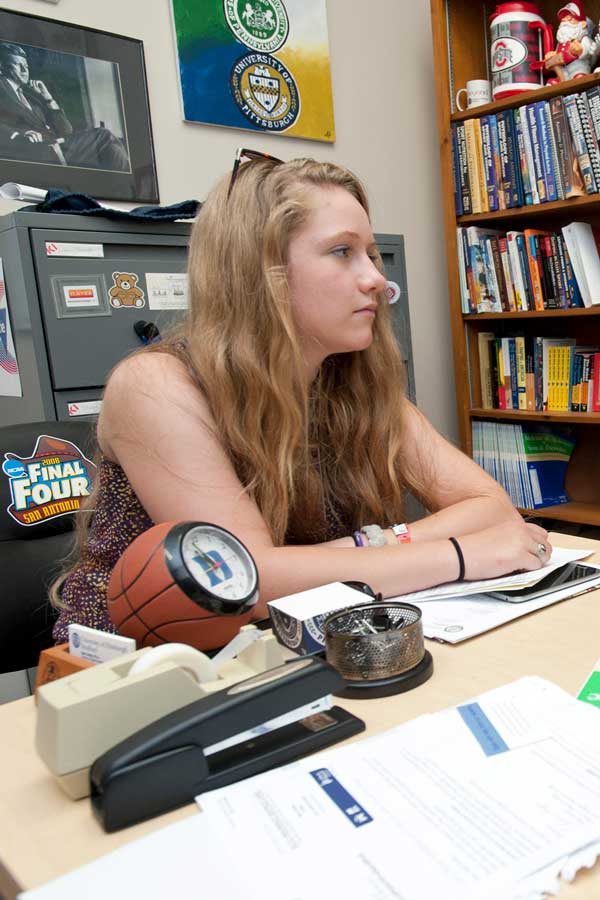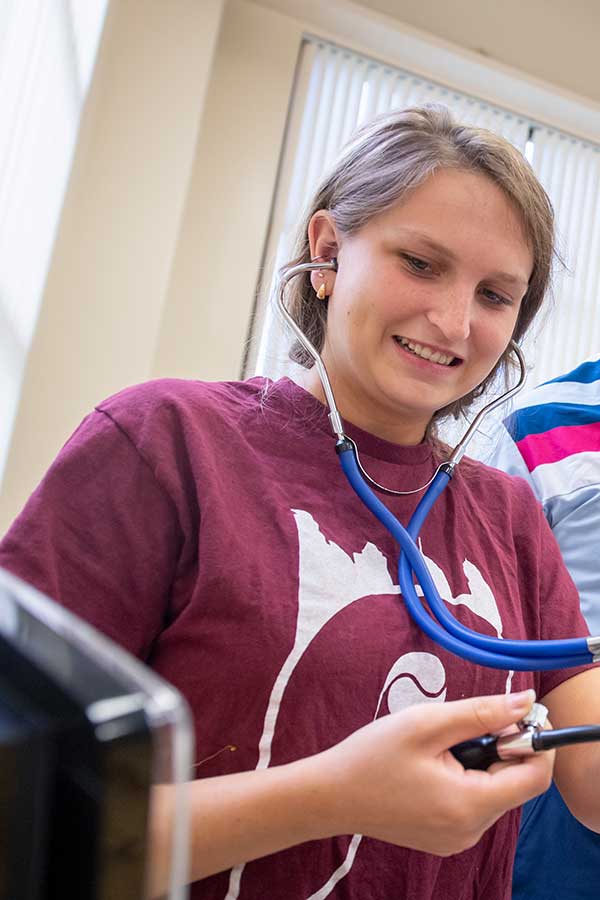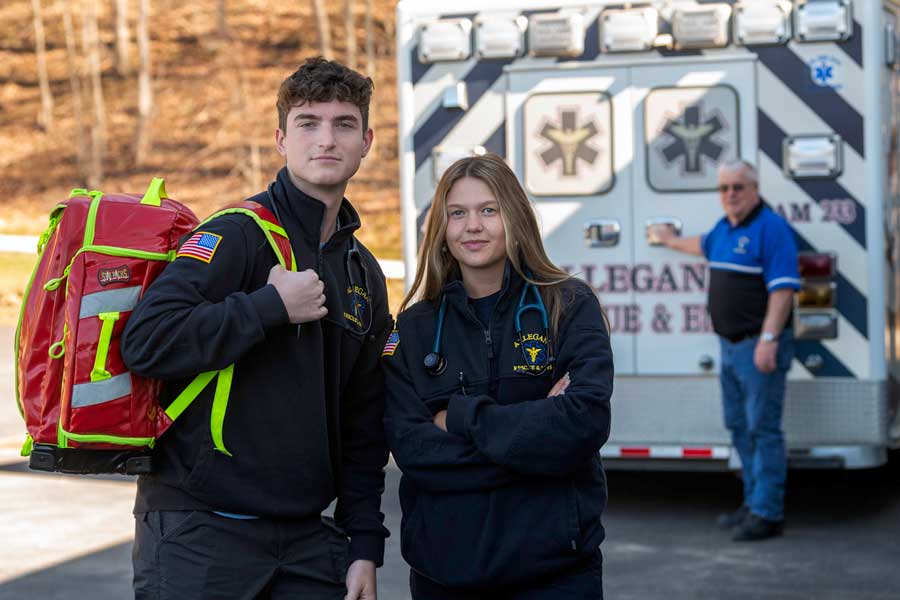
Pre-Health and Rehabilitation Sciences
You’ll get experience in the lab and have the chance to volunteer at local health care facilities.
Why study pre-health and rehabilitation sciences at Pitt-Bradford?
If you want to pursue a major in rehabilitation science, you’ll begin your studies on our campus then relocate to the Pittsburgh campus to finish the final two years of this program.
What will I learn?
You’ll get a solid foundation in the biological, physical and behavioral sciences, so you will succeed in your upper-level rehabilitation science courses when you relocate to the Pittsburgh campus.
Image 

Content
What can I do with a degree in pre-health and rehabilitation sciences?
Our program will prepare you primarily for graduate and professional school, such as physical therapy school. However, you could obtain an entry-level job in several fields.
Split Text Right
Employers:
- Health and rehabilitation-related businesses
- Hospitals
- Government
- Colleges or universities
- Non-governmental agencies
Featured Courses
-
BIOL 0101
Introduction To Cell And Molecular BiologyDesigned for the student majoring in biology. Introduces basic concepts about cell structure and function, including the wide variety of macromolecules that play key roles in living systems. The genetic mechanisms by which hereditary information is passed down from one generation to the next will be discussed. Three hours of lecture and three hours of lab per week. Ge: life sciences -
CHEM 0101
General Chemistry 1The basic principles of chemistry: atomic and molecular structure, stoichiometry, and the general properties of gases, liquids, and solids. The lab emphasizes the basic techniques in quantitative study of chemical processes.
Program-Related News
Image 

Emergency medicine helps communities and students
Body
Area emergency medical services eager for new major.